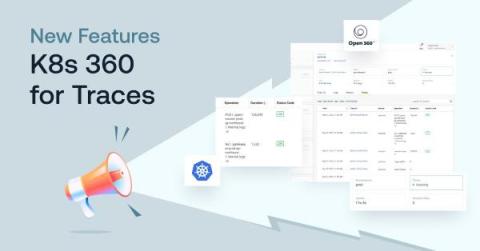Operations | Monitoring | ITSM | DevOps | Cloud
Latest News
Anomaly Detection in 2024: Opportunities & Challenges
Cloud Migration Basics: A Beginner's Guide
How to Build a ROI Plan for Cribl Stream
Getting your organization to invest in a new tool requires telling a story that helps decision-makers understand its benefits. In a recent webinar, our experts discussed how to define an ROI for Cribl Stream. They also shared a sample proposal you can use to craft the story you’ll tell to leadership, and gave some tips and tricks for justifying the purchase of these key tools for your business. Engineers and architects understand core technical problems better than anyone.
Tracing Your Steps Toward Full Kubernetes Observability
Kubernetes is one of the most important and influential technologies for building and operating software today because it’s so incredibly capable. It’s flexible, available, resilient, scalable, feature-rich and backed by a global community of innovators — that’s a pretty impressive list of intangibles to apply to any particular capability.
Forwarding Windows Events to CLM
Announcing Splunk Federated Search for Amazon S3 Now Generally Available in Splunk Cloud Platform
Predictive vs. Prescriptive Analytics: What's The Difference?
Why Does Observability Need OTel?
How to deploy a Hello World web app with Elastic Observability on AWS App Runner
Elastic Observability is the premiere tool to provide visibility into web apps running in your environment. AWS App Runner is the serverless platform of choice to run your web apps that need to scale up and down massively to meet demand or minimize costs. Elastic Observability combined with AWS App Runner is the perfect solution for developers to deploy web apps that are auto-scaled with fully observable operations, in a way that’s straightforward to implement and manage.








